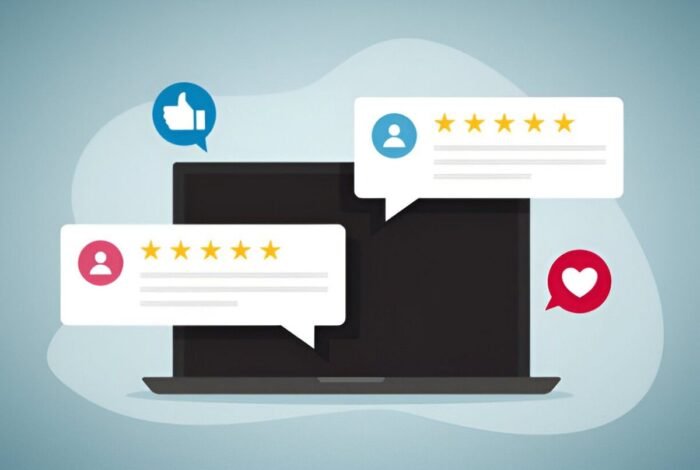Managing a brand’s online reputation is crucial in today’s connected world. As businesses increasingly rely on digital platforms to reach their customers, the way they are perceived online can make or break their success. I’ve spent a significant amount of time exploring various tools designed to enhance online reputations. In this article, I will discuss the most effective tools available, their strengths and weaknesses, and how they can fit into a comprehensive online reputation strategy.
Understanding Online Reputation Management (ORM)
Online reputation management involves monitoring, influencing, and controlling the digital narrative about your brand. While this sounds straightforward, the process encompasses many tasks: tracking customer reviews, addressing negative feedback, managing social media profiles, and improving search engine visibility.
The tools I’ll discuss below are designed to simplify these tasks. They help businesses stay ahead of potential PR disasters and build a positive online presence. Let’s dive into the top tools I’ve found most effective.
1. Google Alerts
Google Alerts is a free and simple tool that tracks mentions of your brand online. It’s an excellent starting point for small businesses or anyone on a tight budget.
Key Features
- Tracks brand mentions, competitors, and industry keywords.
- Sends real-time or scheduled email notifications.
- Easy to set up with a Google account.
Limitations
- Limited customization options.
- Cannot track social media platforms directly.
Best For
Businesses new to ORM or those seeking a free, basic monitoring tool.
Comparison Table: Google Alerts vs. Paid Tools
| Feature | Google Alerts | Paid Tools (e.g., Brand24) |
|---|---|---|
| Cost | Free | Subscription-based |
| Social Media Tracking | No | Yes |
| Sentiment Analysis | No | Yes |
| Real-Time Notifications | Yes | Yes |
2. Brand24
Brand24 is an advanced reputation management tool that provides real-time insights into your brand’s online presence. It tracks mentions across websites, blogs, forums, and social media platforms.
Key Features
- Sentiment analysis to gauge public perception.
- Influencer identification to leverage brand advocates.
- Advanced filtering for actionable insights.
Limitations
- Monthly subscription cost can be prohibitive for smaller businesses.
- Complex dashboard may have a learning curve.
Best For
Medium to large businesses looking for a comprehensive ORM solution.
Comparison Table: Brand24 vs. Mention
| Feature | Brand24 | Mention |
|---|---|---|
| Sentiment Analysis | Yes | Yes |
| Social Media Integration | Yes | Yes |
| Pricing | Moderate | Moderate to High |
| User Interface Simplicity | Moderate | High |
3. Hootsuite
Hootsuite is primarily a social media management tool but also doubles as an effective ORM solution by tracking brand mentions across social platforms.
Key Features
- Schedule and manage posts across multiple platforms.
- Real-time brand monitoring.
- Integration with other tools like Slack and Trello.
Limitations
- Focused more on social media than other channels.
- Advanced features locked behind higher-priced plans.
Best For
Brands with a heavy reliance on social media for customer engagement.
Comparison Table: Hootsuite vs. Sprout Social
| Feature | Hootsuite | Sprout Social |
|---|---|---|
| Social Media Management | Yes | Yes |
| Advanced Analytics | No (basic) | Yes |
| Pricing | Moderate | High |
4. Trustpilot
Trustpilot is a review management platform that allows brands to collect and respond to customer reviews. Reviews are critical for building trust and improving SEO rankings.
Key Features
- Encourages customers to leave verified reviews.
- SEO-friendly review widgets for your website.
- Analytics for review trends and performance.
Limitations
- Heavily focused on review management.
- Paid plans required for full functionality.
Best For
E-commerce businesses and service providers relying on customer trust.
Comparison Table: Trustpilot vs. Yelp for Business
| Feature | Trustpilot | Yelp for Business |
|---|---|---|
| Customer Review Collection | Yes | Yes |
| SEO Integration | Yes | No |
| Pricing | Moderate | Low |
5. Moz Pro
Moz Pro is a robust SEO tool with capabilities that contribute to improving online reputation. By enhancing search engine rankings, Moz Pro helps brands control what appears in search results.
Key Features
- Keyword tracking and rank monitoring.
- Backlink analysis to understand referral sources.
- On-page optimization suggestions.
Limitations
- Expensive for smaller businesses.
- Primarily focused on SEO rather than ORM.
Best For
Brands aiming to improve search engine visibility as part of their ORM strategy.
Comparison Table: Moz Pro vs. Ahrefs
| Feature | Moz Pro | Ahrefs |
|---|---|---|
| Keyword Tracking | Yes | Yes |
| Backlink Analysis | Yes | Yes |
| Pricing | High | High |
6. ReviewTrackers
ReviewTrackers specializes in collecting, managing, and analyzing online reviews. It integrates with various review sites, making it easier to monitor customer feedback in one place.
Key Features
- Centralized review management.
- Automated review request system.
- Sentiment analysis for reviews.
Limitations
- Focused only on review management.
- Subscription cost may deter small businesses.
Best For
Businesses prioritizing customer review management as part of ORM.
Comparison Table: ReviewTrackers vs. BirdEye
| Feature | ReviewTrackers | BirdEye |
|---|---|---|
| Centralized Review Platform | Yes | Yes |
| Automated Requests | Yes | Yes |
| Pricing | Moderate | High |
Building a Comprehensive ORM Strategy
No single tool can address every aspect of online reputation management. Here’s how I suggest combining tools for maximum effectiveness:
- Monitoring: Use Google Alerts for general brand mentions and Brand24 for comprehensive tracking.
- Engagement: Leverage Hootsuite to interact with customers on social media.
- Reviews: Employ Trustpilot or ReviewTrackers to gather and analyze customer feedback.
- SEO: Incorporate Moz Pro to control your search engine presence.
By strategically integrating these tools, you can monitor your brand’s reputation, address negative feedback promptly, and amplify positive customer experiences.
Conclusion
Managing your brand’s online reputation isn’t a one-time effort. It requires ongoing attention, a clear strategy, and the right tools. Whether you’re a small business using Google Alerts or an enterprise investing in Brand24, the key is consistency.
I’ve found that starting small and scaling your efforts as your business grows works best. Choose tools that align with your goals, and don’t hesitate to adapt your strategy based on the insights they provide. With the right approach, you’ll not only protect your reputation but also turn it into a competitive advantage.





